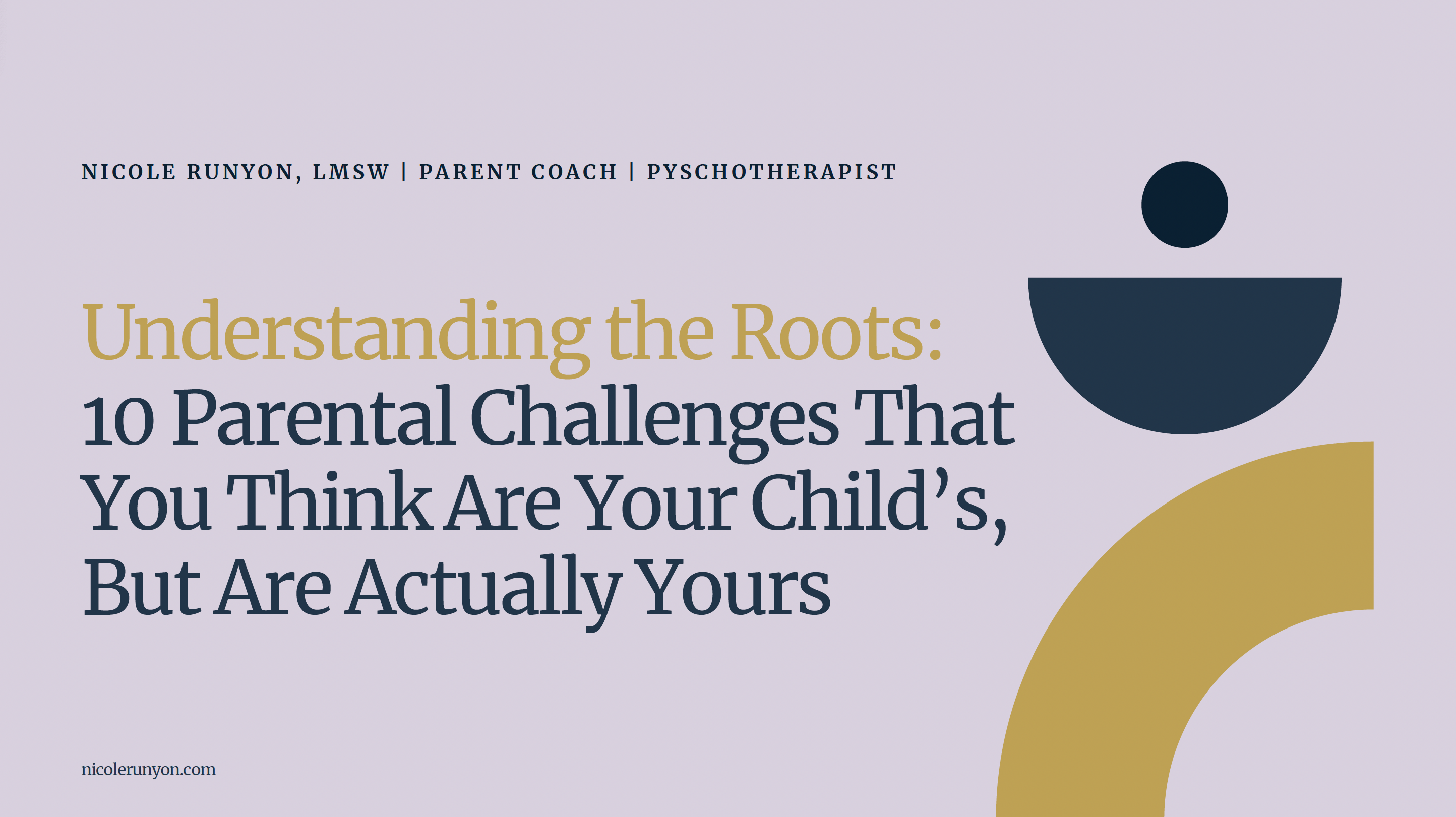Why is there so much anxiety in the iGeneration?
Life is full of uncertainty. Though this experience isn’t limited to any single generation, in the case of the iGeneration, they have experienced a heightened level of economic and macro-cultural change that hasn’t been felt in past decades. This instability, coupled with the legacy of parenting styles from previous generations has contributed to an epidemic of anxious children, adolescents, and teens.
Millennial parents descend from the parenting styles of the baby boomers and Generation X. People from these generations frequently did not get their emotional needs met as children. Since parents raise children based on their childhood wounding, many millennial parents often discourage their children from acknowledging and experiencing negative feelings or emotions as well.
Instead of allowing their child to develop the skills to self-regulate their emotions, they attempt to inhibit or manage the negative experience themselves to keep the child comfortable. Inevitably, when a child faces a situation or environment that cannot be controlled, the child does not have the coping skills or a means to self-soothe. This lack of emotional agency often presents itself as anxiety as the child grows older.
Anxiety is a result of unresolved emotional issues, causing an individual to feel unsettled or insecure. A person may experience anxiety especially when they feel unable to control any unpredictable circumstances that may arise. Anxiety and control are linked. Since the brain is sophisticated and takes the path of least resistance, people will often try to suppress difficult feelings by attempting to control aspects of their outside environment. Unfortunately, this sense of control only provides temporary relief from the feeling of uneasiness.
What can today’s parents do to help reduce anxiety?
Unlike past generations, many of today’s parents are choosing to start families at a later age. This often means more established parents have access to educational and financial resources that provide an easier life for their children. As a result, today’s children may be blissfully unaware of the concept of hardship. Without this knowledge, well-meaning parents may inadvertently set up their children to grow into helpless or entitled adults.
Parents need to allow their children to face challenges and experience frustration, failure, and disappointment independently. This allows children to develop the skills necessary to be self-aware when owning their emotions, and self-sufficient when solving problems. Allowing children to struggle also provides opportunities for learning, growth, and self-reliance.
In my practice, I work with parents and children in school settings where they may struggle socially or academically. I encourage children to talk directly to their teachers and administrators about any issues first rather than having a parent do the talking for them. If there is a social issue, I encourage parents to allow the child to work on communication and problem-solving directly with their peers.
This may be difficult and uncomfortable for both child and parent, but it is also an essential learning tool. If the child has attempted to resolve the issue and is unable to make further progress, then a parent or adult may step in to provide support. Along with trust and proper guidance, children can learn how to take ownership of their emotions and behavior, sharpening problem-solving skills when they are on their own in the world.


